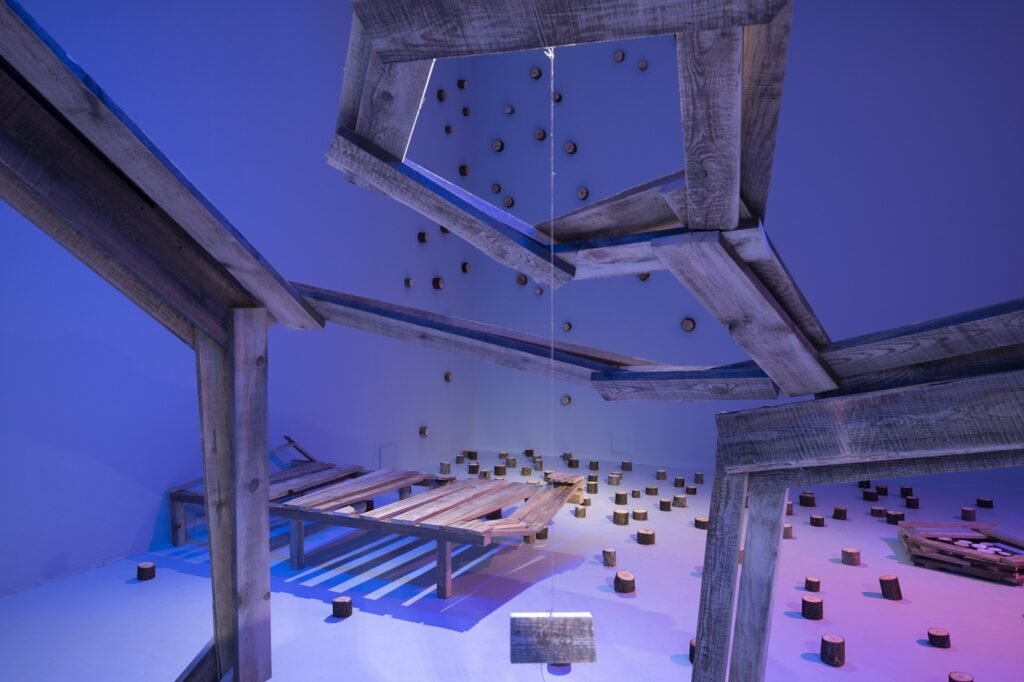Inspiration rarely arrives through expected channels. I came to Warsaw with literary intentions but found myself instead immersed in the 67th Warsaw Autumn Festival (Warszawska Jesień)—Poland’s premier contemporary classical music event that transforms concert halls, churches, and unconventional spaces across the city into laboratories of sound exploration. The experience has proven unexpectedly nourishing for my creative practice, demonstrating once again how cross-disciplinary encounters often spark the most productive creative insights.
Last night I attended a performance at the Warsaw Philharmonic Hall that fundamentally altered how I think about narrative time. The program featured a new composition by a young Polish composer that experimented with what he called “temporal stratification”—different sections of the orchestra playing at distinctly different tempos simultaneously. The resulting sound created a disorienting but captivating effect where multiple timelines seemed to unfold in parallel, occasionally synchronizing at crucial moments before diverging again.
How might this approach translate to fiction? I found myself imagining a narrative structure where different characters’ storylines progress at varying temporal rates, perhaps one moving through years while another experiences mere days, their experiences intersecting at precisely choreographed moments. The composition’s structure suggested new possibilities for representing simultaneity and temporal distortion that conventional linear storytelling struggles to capture.
Another concert held in the post-industrial space of Soho Factory featured electroacoustic works where recorded environmental sounds—train stations, forest ambience, urban traffic—were manipulated, layered, and interwoven with live instrumental performance. The boundary between “found” and “created” sound continuously dissolved, raising questions about authorship and authenticity that parallel ongoing debates in contemporary literature. When does documentation become creation? How does context transform meaning? These questions feel particularly relevant to my current project, which explores how stories both reflect and construct reality.
Between festival performances, I had the unexpected pleasure of meeting with a small literary circle at the University of Warsaw, a gathering of students and faculty from the Russian Studies department who had been reading “Inhuman Humanity” in both its English edition and excerpts they had independently translated into Polish for study purposes. Their invitation came through a series of fortunate connections—a festival violinist whose wife teaches at the university had somehow learned of my presence in Warsaw.
The discussion took place in a wood-paneled seminar room with windows overlooking the university’s historic courtyard. What struck me immediately was how differently these readers approached the novel compared to English or Russian audiences. Their questions focused particularly on the book’s exploration of institutional dehumanization, which they connected to specific Central European historical experiences. One doctoral student noted how certain passages echoed themes in Polish dissident literature from the Soviet era, connections I hadn’t consciously intended but which enriched my understanding of my own work.
I read a short section from the novel’s central chapter, where the protagonist first recognizes the systemic nature of the cruelty she’s witnessing:
The forms arrived weekly, requiring her to categorize and quantify human suffering with clinical precision. Distress became “psychological adjustment factor 3.7” while displacement became “residential status modification.” The language itself functioned as a barrier, preventing direct confrontation with reality. She had initially believed this bureaucratic obfuscation was a byproduct of institutional inefficiency, but now recognized it as purposeful—a syntactic anesthetic that numbed ethical response.
The students’ responses illuminated aspects of this passage I hadn’t fully articulated even to myself—particularly how linguistic transformation serves as both symptom and mechanism of moral detachment. One professor connected this theme to the work of Polish philosopher Zygmunt Bauman on “liquid modernity” and the bureaucratization of cruelty, suggesting theoretical frameworks that might help me develop these ideas further in future writing.

What I value most about these unexpected literary encounters while traveling is their capacity to defamiliarize my relationship to my own work. Hearing my words discussed in a language I don’t speak, translated and interpreted through cultural frameworks different from those that produced them, creates productive estrangement—I see my writing freshly, recognizing both intentions I wasn’t consciously aware of and limitations I hadn’t previously perceived.
Today marks my final day at the Warsaw Autumn Festival, and I plan to attend a sound installation at the Ujazdowski Castle Centre for Contemporary Art where visitors move through rooms featuring different acoustic environments that respond interactively to human presence. This integration of audience into the artwork itself suggests interesting possibilities for literary form—how might a text similarly respond to and incorporate the reader’s engagement? While fully interactive fiction remains technologically challenging, the conceptual framework offers rich territory for exploration.

Tomorrow I leave for Milan, carrying with me both new musical memories and literary connections. The most valuable insight from these Warsaw days has been a renewed appreciation for how different artistic disciplines grapple with similar fundamental questions through their distinctive materials and methods. Music’s capacity to create emotional and perceptual experiences that resist verbal articulation reminds me of the limitations of language even as I commit more deeply to exploring its possibilities.
“The job of the artist is always to deepen the mystery.” (Francis Bacon’s observation feels particularly resonant after experiencing works that expand perceptual possibilities rather than narrowing toward definitive interpretation)
— Anastasia
